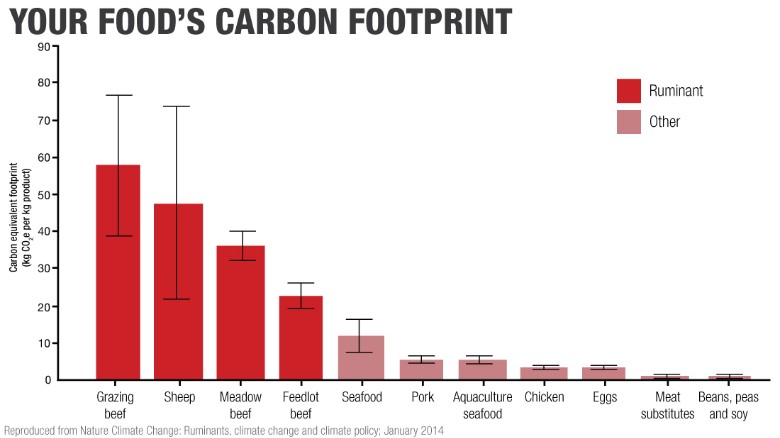Meatless Mondays
Try going meatless for all your meals every Monday!

Did you know that producing 2.2 pounds of beef takes enough energy to light a 100-watt bulb for 20 days? Or that it takes 660 gallons of water to produce one hamburger? (Sources: Sustainable Table and Seafood Watch). Others are saying Beef is the New SUV. Reducing your meat consumption is the fastest way to curb carbon emissions!
There are 7 billion people on Earth sharing 7.68 billions acres of arable land. That would be plenty of space for one acre per person, with places left over for wildlife and their homes. However, meat consumption takes up to three times more than that, requiring precious wild lands to be used for raising beef and growing their food.
The Amazon rainforest is an unfortunate example of this. One of the most important ecosystems on the planet is being cut down at a rapid rate to grow feed for livestock. The livestock industry directly affects a lot of our endangered species and our planet!
70 percent of this planet’s agricultural land is used for livestock production (2006 FAO report), with 30 percent of ALL terrestrial land on Earth used for livestock (John D. Sutter, CNN).
In addition to habitat loss from cattle and food for cattle, the beef industry is directly linked to climate change from the amount of methane produced from cows, and 14.5 percent of all greenhouse gas pollution can be attributed to livestock. 65 percent of that comes from raising beef and dairy cattle. Methane is an extremely potent greenhouse gas with 25 times more global warming potential as carbon dioxide. In America, the average cow releases an average of 117 pounds per year.
You can help by trying Meatless Mondays to help reduce the emission of gases in our climate!


Connect With Your Wild Side #onlyzooatl